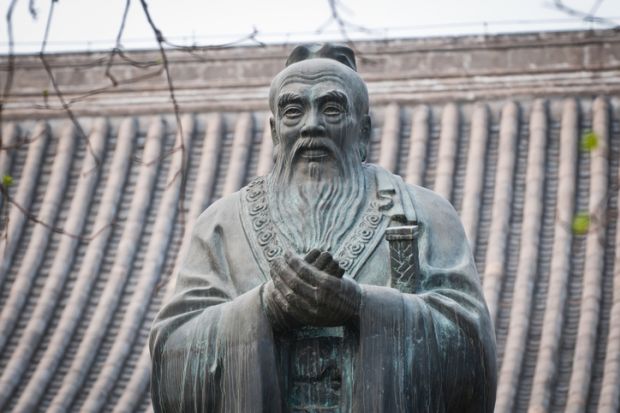Rather than inflicting Chinese doctrine on local students, Australia’s oldest Confucius Institute says it is educating its Chinese staff in the ways of their hosts.
Maggie Jiang, director of the University of Western Australia’s Confucius Institute, said she had conducted Australian cultural training internally after her Chinese staff grew infuriated at local media portrayals of their homeland.
“Nationalism is rising [and] we face the consequences of it,” Dr Jiang told the Australian International Education Conference in Perth. “[It] is very important…to encourage cross-cultural engagement in our international education practice; to embrace different perspectives, voices [and] opinions.”
Dr Jiang said she encouraged newly arrived staff to download media apps, such as the public broadcaster ABC’s radio station, to boost their understanding of their host country. But the coverage left some staff “really angry” about the representation of China in Western media.
In a pilot professional development course, the institute explored “the different role of media in different belief systems”, and helped staff understand that negative news was “normal” in Australia and they should approach it from a “less sentimental perspective”.
The workshop explored how Western campuses also permitted student activism, such as a Hong Kong independence protest at the University of Queensland that loyalist mainland students tried to drown out. “Singing the national anthem to cover the other side’s voice is probably not the best democratic practice,” Dr Jiang observed.
“To be able to embrace different voices [and] understand that protest is allowed in a democratic country, and how you express your opinion and engage in a productive dialogue – [all this] is very important.”
The staff heard that it was not unexpected for a large, rising economy with a different political system to generate concern in Western societies. “Understanding the concern as a normal thing is very important for the Chinese perspective,” Dr Jiang said.
“Australia is the only country in this world which attends both the Eurovision Song Contest and Asian Football Confederation. In a country like this, of course we’d have some concerns about a rising China.”
She advocated cross-cultural training for visiting students as well as staff, not just from China. Many foreigners encountering Australian campuses for the first time were confronted by what they observed around “touchpoint” racial, sexual, religious and political issues.
Dr Jiang said her institute attracted media queries about its influence on university curricula on an almost weekly basis. “We don’t teach on campus at all,” she protested. “Even the local schools we work with design their curriculum and teaching material. We only provide teaching support.
“We welcome journalists to come to our campus, sit in our classrooms [and] see what we teach. The frustrating thing is [that] our message doesn’t get out. Journalists [are] not picking up what we’re saying.”
She sidestepped a question over why Confucius Institutes did not defuse the criticism by operating at arm’s length from universities, as do other language and cultural education organisations such as the Goethe-Institut, Alliance Française and Instituto Cervantes. “Confucius Institutes really deserve a better perception,” she insisted.
“Some media talk about influence on universities’ curricula. What is their evidence? We’re not teaching on campus; we don’t even work with university degrees here. To me, media are looking for things that support their own presumptions.”
Register to continue
Why register?
- Registration is free and only takes a moment
- Once registered, you can read 3 articles a month
- Sign up for our newsletter
Subscribe
Or subscribe for unlimited access to:
- Unlimited access to news, views, insights & reviews
- Digital editions
- Digital access to THE’s university and college rankings analysis
Already registered or a current subscriber? Login










